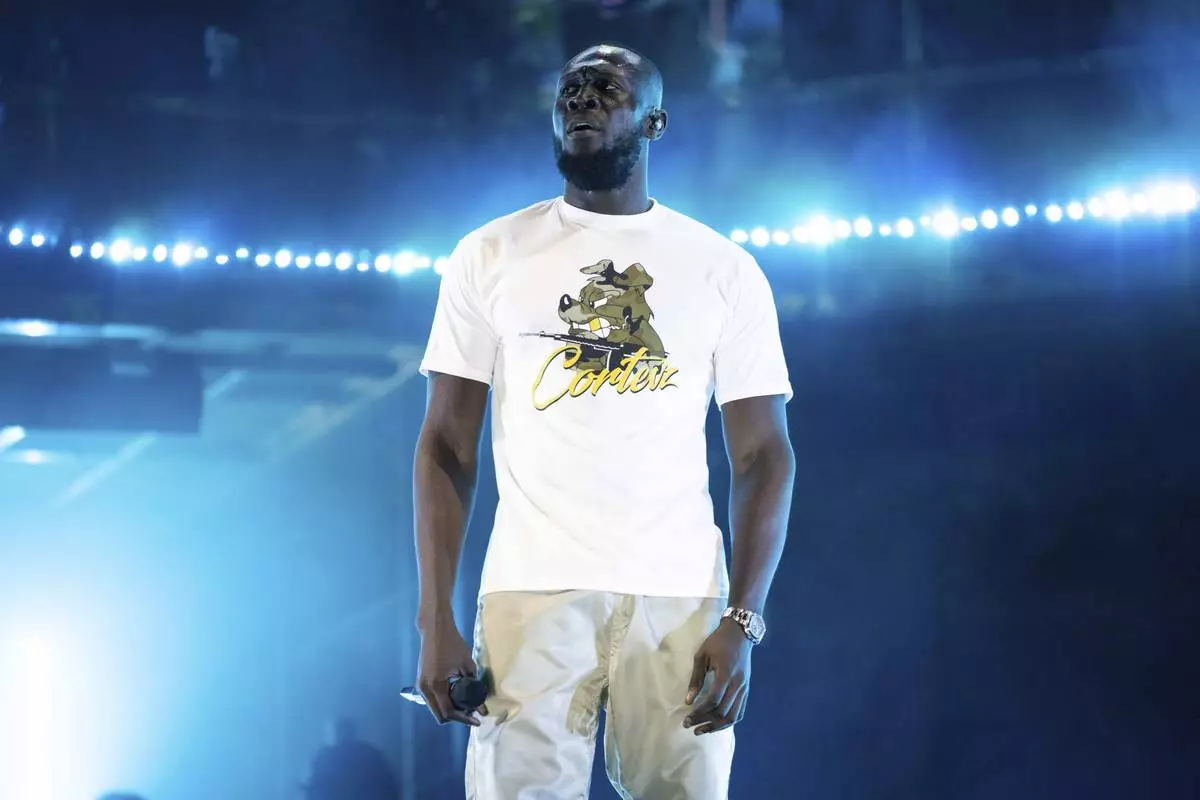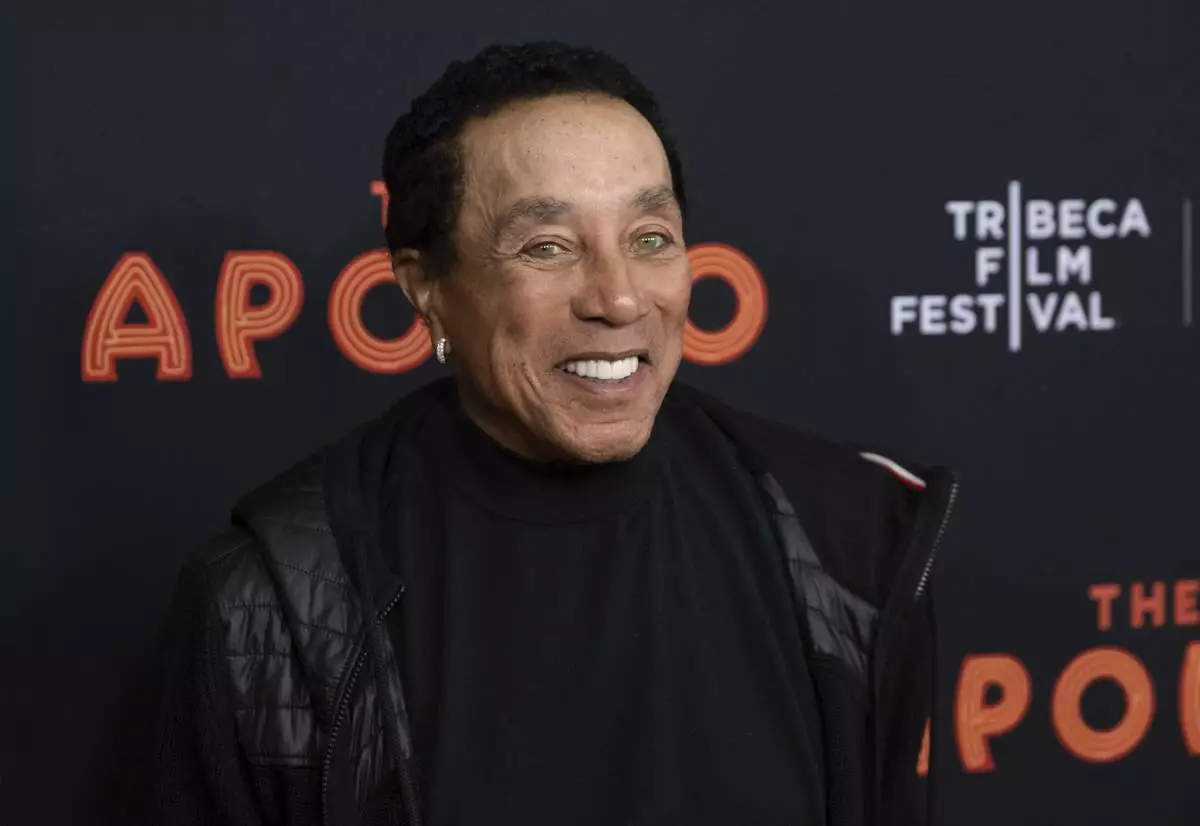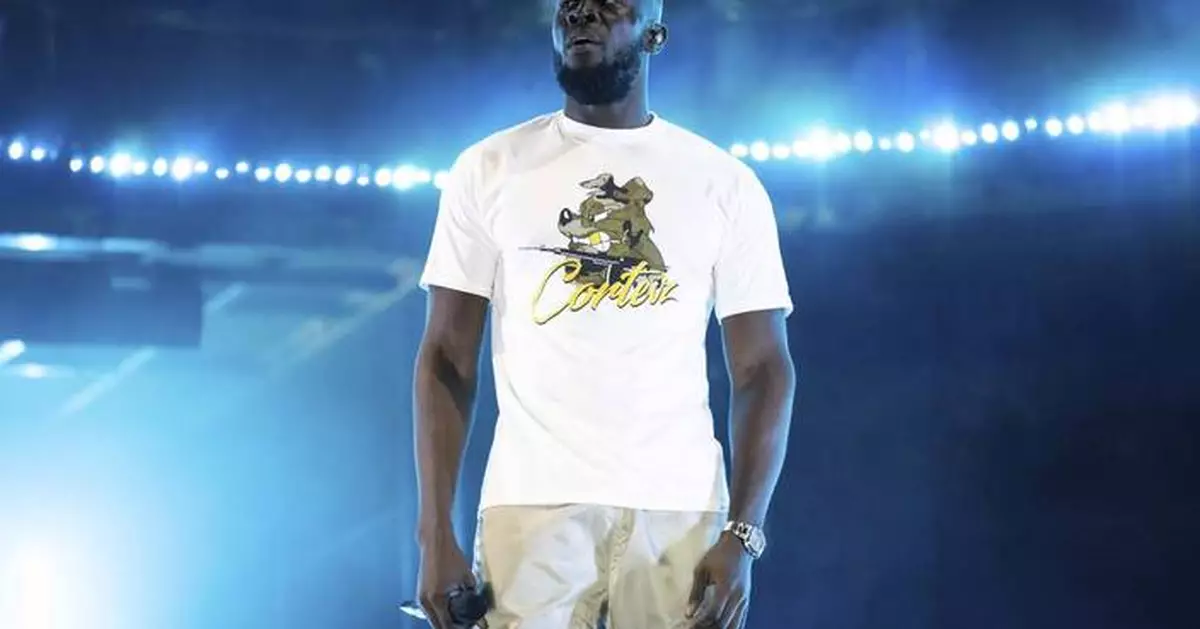LONDON (AP) — British rapper Stormzy was banned from driving for nine months on Thursday after admitting he drove his Rolls-Royce through London while using his phone.
The 31-year-old, whose real name is Michael Ebenazer Owuo Jr., is known for bringing the grime genre of rap into the commercial mainstream. His debut “Gang Signs and Prayer” won album of the year at the Brit Awards in 2018, where he was named best male British solo artist — an honor he won again in 2020.
His record on the road, however, isn’t good, a judge said at Wimbledon Magistrates’ Court.
District judge Andrew Sweet said that Stormzy’s actions were “dangerous and irresponsible.”
Stormzy previously put “vulnerable road users at risk” when he drove a Lamborghini Urus with illegally tinted windows, prosecutor Alice Holloway said. The windows only allowed 4% light transmission — a tiny fraction of the 70% required for tinting.
Stormzy, who wasn’t in court for the hearing, pleaded guilty in writing to the cellphone driving charge from March. He had previously admitted to the 2023 tinting offense and also had a record of speeding.
The rapper was also fined 2,010 pounds ($2,500) and penalty points were added to his license.
Defense lawyer Peter Csemiczky said that Stormzy apologized and accepted responsibility.
Driving bans are handed down regularly in England for traffic offenses. They can be discretionary or mandatory for using a phone while driving, depending on the nature of the offense.

FILE - Stormzy performs at the Reading Music Festival, England, Friday, Aug. 27, 2021. (AP Photo/Scott Garfitt, File)
LOS ANGELES (AP) — The Los Angeles County Sheriff's Department said Thursday that it has opened a criminal investigation into rape and sexual assault allegations against Motown music luminary Smokey Robinson.
The department said in a statement that its Special Victims Bureau is “actively investigating criminal allegations” against Robinson.
Last week, four former housekeepers of Robinson filed a lawsuit alleging that he repeatedly raped and sexually assaulted them, in some cases for years, while they worked for him.
The suit filed in Los Angeles Superior Court seeks at least $50 million in damages over the alleged assaults, which the women say took place between 2007 and 2024.
Robinson's lawyer said there was no merit to the allegations against the 85-year-old musical icon who was among the biggest hitmakers of the 1960s.
The attorney, Christopher Frost, said Tuesday the only reason for the suit is “unadulterated avarice.”
“We feel confident that a determination will be made that Mr. Robinson did nothing wrong, and that this is a desperate attempt to prejudice public opinion and make even more of a media circus than the Plaintiffs were previously able to create,” Frost said.
John Harris and Herbert Hayden, the lawyers for the women, say they are pleased to learn that law enforcement is pursuing the allegations.
“Our clients intend to fully cooperate with LASD’s ongoing investigation in the pursuit of seeking justice for themselves and others that may have been similarly assaulted by him," the lawyers said.
The sheriff's statement said the investigation is in its early stages, and no other details would be provided.
Robinson's attorney said last week that the allegations “defy credulity” and are full of inconsistencies.
The four women, whose names have not been made public, each allege that Smokey Robinson would wait until he was alone with them in his Los Angeles house and then sexually assault and rape them. One woman said she worked for Robinson from 2012 until 2024 and was assaulted at least 20 times. Another said she worked for him from 2014 until 2020 and was assaulted at least 23 times.
Harris called Robinson a “serial and sick rapist” who must be stopped.
When asked at a May 6 news conference whether the women had talked to police, Hayden said no, but felt the allegations merited law enforcement getting involved.
All of the accusers said they eventually quit over the assaults. And all said they feared coming forward over fears of retaliation, public shame and possible effects on their immigration status.
Robinson churned out a host of hits as a central part of the Motown Records machine — both with his group the Miracles and as a solo artist, with songs including “Tears of a Clown” and “The Tracks of My Tears.” He also wrote and co-wrote songs for other Motown artists, including the Temptations' “My Girl.”
He is a member of both the Rock & Roll Hall of Fame and the Songwriters Hall of Fame.

FILE - Smokey Robinson attends the screening for "The Apollo" during the 2019 Tribeca Film Festival on April 24, 2019, in New York. (Photo by Charles Sykes/Invision/AP, File)






















































